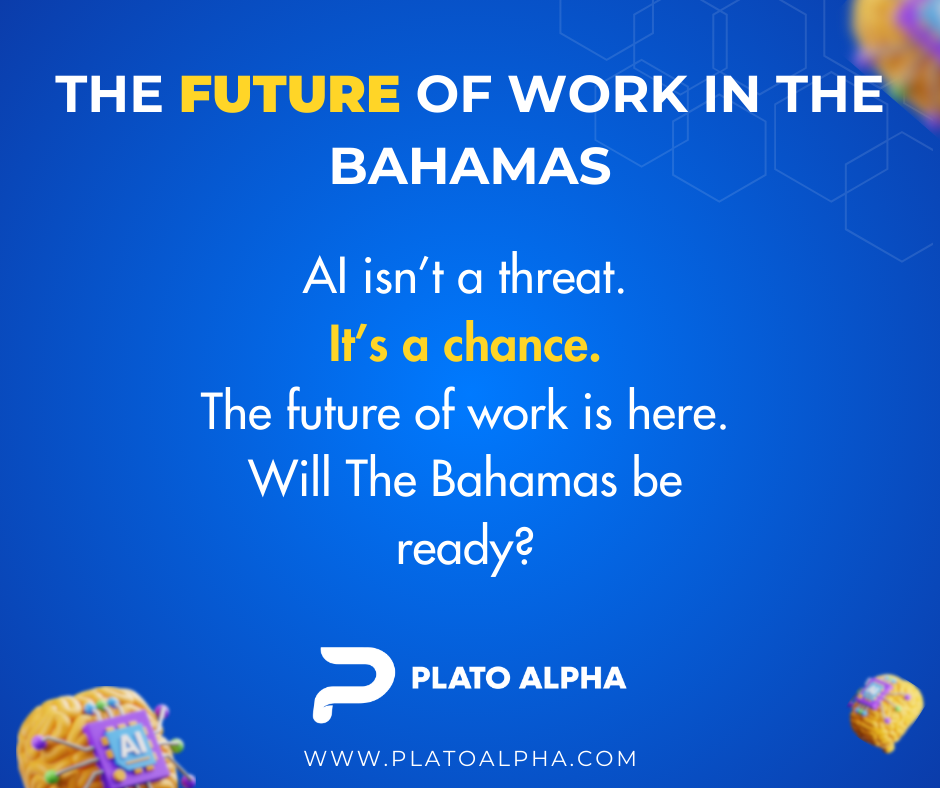
Alpha Insights: The AI Revolution and The Future of Work in The Bahamas
Walk into almost any industry today, whether it be finance, health care, tourism, even construction…and you’ll hear about Artificial Intelligence (AI). Some hail it as a productivity goldmine, while others fear it as a job killer. One thing is certain: AI is reshaping the future of work, and The Bahamas is very much part of that story.
AI is no longer just a Silicon Valley buzzword. It’s writing reports, analyzing data, powering customer service bots, and even making hiring decisions. For some, this raises anxiety… “Will my job disappear?”. While for others, it sparks excitement…“What new opportunities will emerge?”
AI at Work in The Bahamas
Here at home, AI is already woven into our daily economy:
- Hotels are using AI chatbots to improve guest experiences.
- Financial institutions leverage machine learning to flag fraud and enhance customer service.
- Small businesses use AI tools to automate marketing, scheduling, and payroll.
AI isn’t just replacing jobs, it’s transforming them. A concierge now manages digital tools alongside guest requests. HR officers spend more time analyzing dashboards than filing paperwork. Even fishermen benefit from AI-powered mapping to optimize their work.
The Skills Shift: Upskilling for Tomorrow
The lesson? Bahamian workers must learn to work with AI, rather than against it. That requires upskilling.
Education and training must evolve to meet this challenge. Traditional rote learning won’t cut it in a world where adaptability and digital literacy are essential. We need collaboration between the public and private sectors to create accessible, affordable tech education. Whether through coding bootcamps, AI ethics training, or practical courses for business owners, it is now a must.
Imagine BTVI offering a class on AI Tools for Small Business Owners or UB launching a course on AI in Tourism Management. This isn’t about turning everyone into programmers, it’s about giving Bahamians the skills to thrive in an AI-driven economy.
The Opportunity Ahead
While AI may displace certain tasks, it can also create new jobs in data analysis, system integration, digital marketing, and remote services. It could even decentralize the workforce, thus, enabling Bahamians to provide digital services globally without leaving the islands. But this requires the right skills, and a willingness to adapt.
Conclusion: The Future Is Here
AI is already here. The question isn’t if it will transform work in The Bahamas, but how ready we are to adapt.
If we invest in training, embrace digital transformation, and support local innovation, Bahamians will be conductors steering it toward a stronger, more competitive economy.
The future of work is here. Let’s be ready to meet it, head-on.
